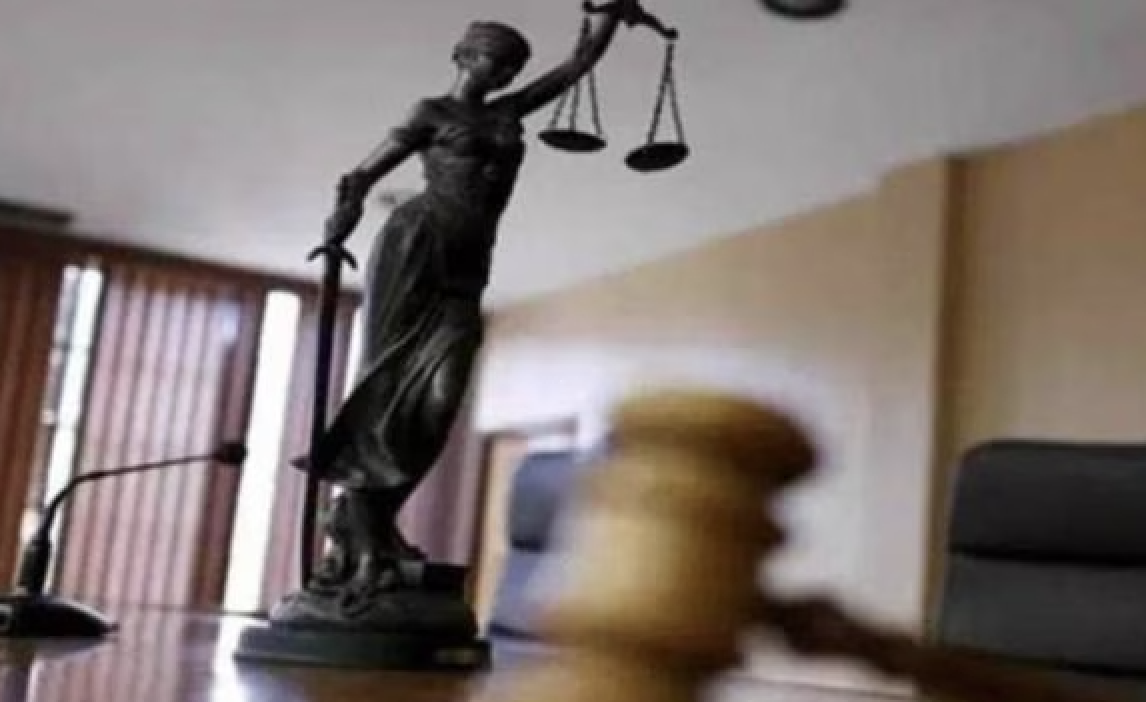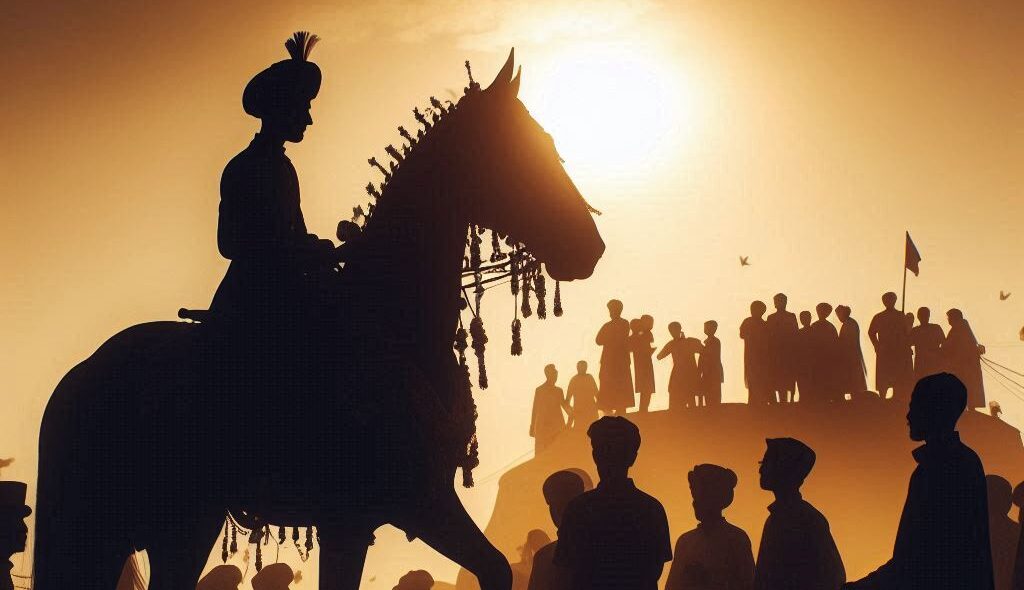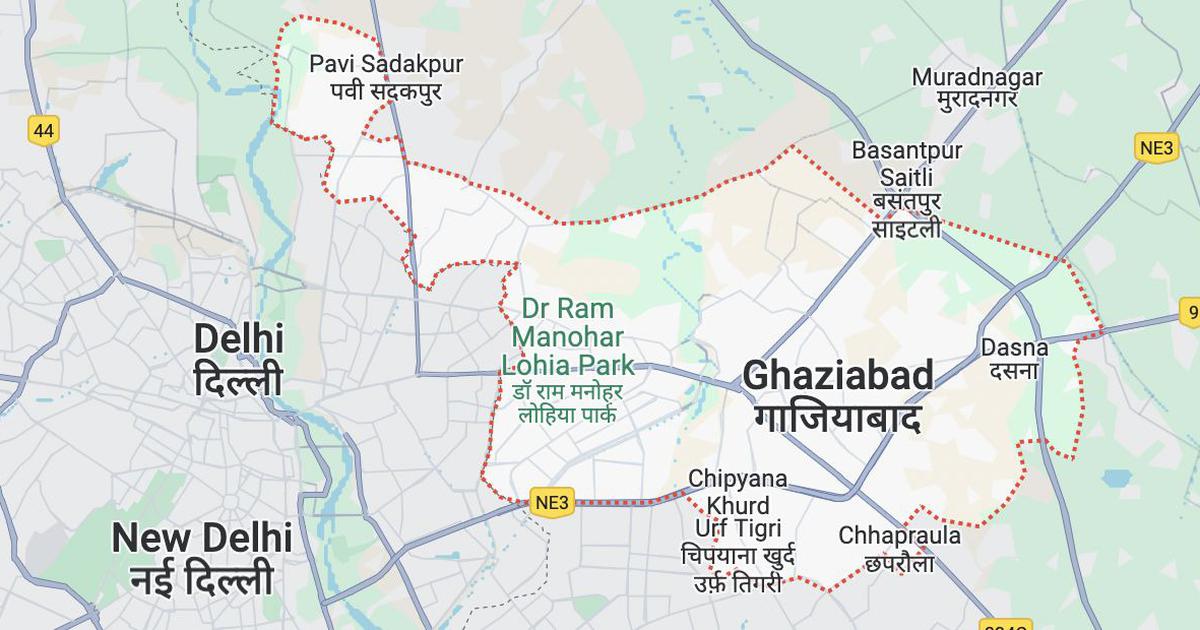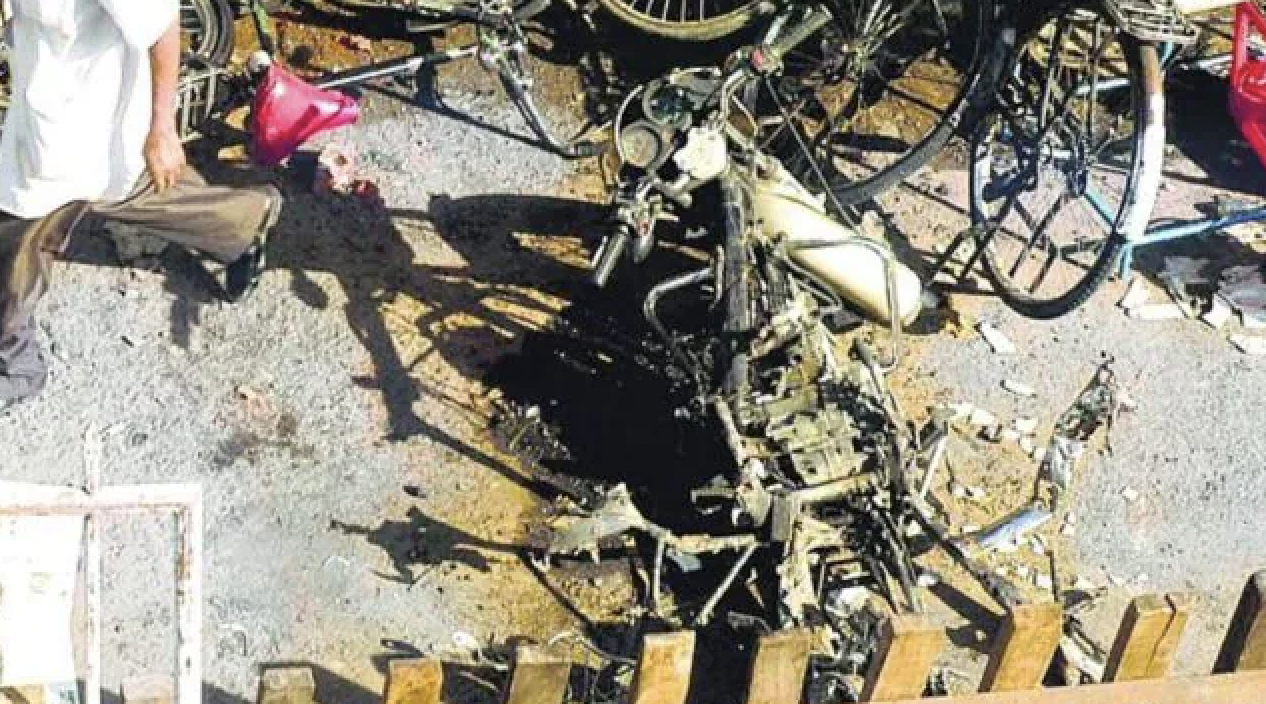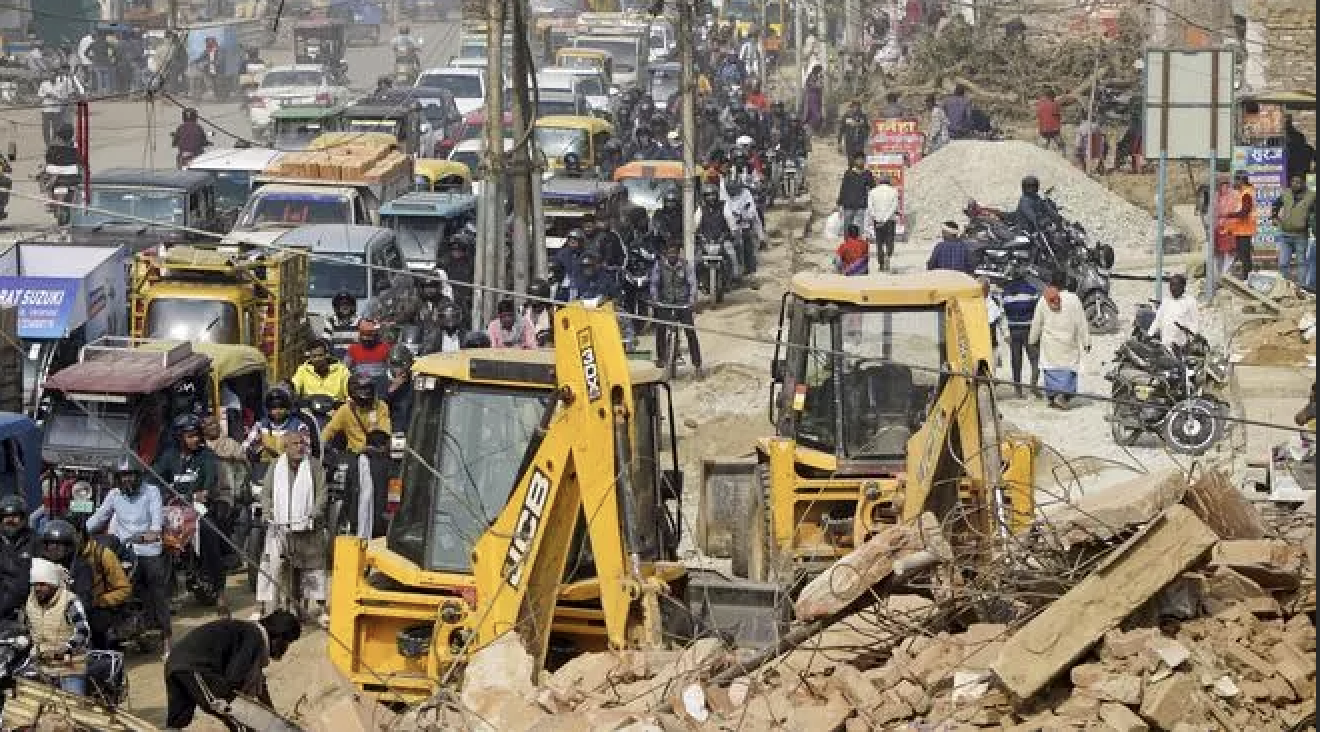
By Anuj Behal
On January 16, Mohammad Mateen, 40, a driver from Khaggu Sarai of Sambhal, Uttar Pradesh, was arrested on charges of “disturbing peace.” His family, however, alleges that the arrest is part of an ongoing effort to force them out of their home following the “discovery” of a purported centuries-old temple adjacent to their house.
Mateen bought the property in 2002 with his own earnings and has all the necessary ownership documents. He even secured a bank loan by mortgaging the house. Despite this, the administration now sees his home as an obstacle to Hindu devotees who wish to perform parikrama around the temple. With Mateen’s arrest and mounting pressure to vacate, the family fears they may be forced out entirely.
Speaking to The Wire, Mateen’s wife, Uzama Parveen, claimed that the district administration has been pressuring them ever since the temple was identified. “First, they told us to demolish our balcony, saying it was encroaching on the temple. Out of fear, we complied. But that was not the end of it,” she said. Soon after, Sambhal Sub-Divisional Magistrate (SDM) Vandana Mishra allegedly asked the family to demolish a wall of their house. “When we refused, she threatened that we might have to bring down the entire house,” Parveen added.
Her husband’s arrest, she claimed, was an extension of this pressure. “The police called him to the station and took him into custody, saying he was obstructing Hindu devotees from offering prayers.” Mateen was granted bail on January 24, but the fear of eviction lingers.
Polarisation in numbers
In 2024, at least 7,407 homes were demolished, rendering around 41,085 people homeless across 16 States
Uttar Pradesh accounted for the highest number of evictions, followed by Delhi, Assam, and Gujarat.
Nearly 37 per cent of documented housing demolitions targeted Muslim homes and localities.
One in four demolitions were punitive, often linked to communal tensions and state-led retribution.
Sambhal has witnessed repeated incidents of violence, and an atmosphere of fear prevails after violent clashes erupted over the archaeological survey of a Mughal-era mosque on November 19. A local court ordered the survey following a petition claiming the mosque was built on a temple site. According to Saad Usmani, a Sambhal-based journalist, tensions in the district have been high since November last year. “Many temples, like the one in Khaggu Sarai, have been ‘rediscovered’ and reopened across UP—all of them located in Muslim neighbourhoods,” he told Frontline. “God only knows where they’ll find the next one and who will be asked to leave their own home next,” Usmani added.
This story was originally published in frontline.thehindu.com. Read the full story here.


